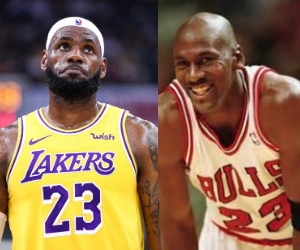
If we account for all the professional teams in the US and assume they each have 18 available slots, we get around 1,400 positions. There are approximately 3,5 million young boys playing football at a youth level, which means that the chance to become a Pro is… 1 in 2,500! But what factors matter on that journey? How do football players turn pro?
Athletic Ability

First and foremost, there is a basic Darwinian factor to consider – one’s physical ability. Look no further than Cristiano Ronaldo for a prime example. Things like endurance, balance, speed, and strength play an important role in gaining a significant competitive advantage over your peers, but it goes further than that.
There is an opinion that the determining factor is the power in the quadriceps, which is a muscle located in front of the thigh. Those lucky to have been born with such a gift are assumed to have an easier time executing the technique, as well as accelerating and adapting to the football field.
Skill

On the other hand, we have the technique itself. It isn’t unusual to come to an obvious conclusion that skill is what matters for Pro players, especially if you watch the likes of Messi outperform those who are more athletically capable.
Acquiring skill takes practice and a lot of work. Not only does it include ball control, dribbling, and passing accuracy, but also the high-level stuff like spatial awareness and the ability to assess risk in the blink of an eye.
Coaching

This brings us to the third point – coaching. Great managers possess a plethora of qualities to guide and mentor fresh and excited football players. If not for Lula, the coach of Santos, Pele wouldn’t have become the legend that he is today. Unfortunately, not all coaches are talented, which is something that definitely halts the progress of an aspiring Pro.
Qualities such as leadership, passion, and patience are, no doubt, invaluable. However, the ability to apply positive and thoughtful communication is as important.
Last but not least, a coach must learn to observe and notice the details that affect the big picture. Each decision should be strategic – only then the development of a football player goes in the right direction.
Mindset

Needless to say, a player must possess a sufficient level of self-motivation and perseverance to withstand demanding practice sessions and mentally recover from losses and mistakes. In addition to that, a boy must be coachable in order to acquire the knowledge and experience from his mentor. And hard work is the tip of the spear.
Things like compassion and composure are not just fluff words as well. If you watch the top players, not only will you see exceptional athletes but also noble, admirable human beings. Sport is about respect. It is a reflection of real-life and of the mindset within.
Take Eric Abidal as an example. Not only did he achieved greatness as a part of Barcelona, but he had been diagnosed with cancer and undergoing multiple surgeries that served as major setbacks. He never gave up the idea of football, and the results speak for themselves.
Injuries

Devastating as they are, accidents happen quite frequently. Depending on the severity of the injury, it can steal away valuable weeks of training, or even completely ruin the career in one unfortunate second. Look no further than Stuart Holden, a Bolton player who has experienced a set of injuries that resulted in him retiring from football at the young age of 30.
Conclusion
When you watch a professional football game, imagine all the obstacles and impossible odds that stood between the players and professional games. It only takes a moment to realize how admirable and spectacularly talented they are, reminding us of an obligation to make good use of a gift that was given to us.
You can also read about The Highest Paid MLS Soccer Player from Europe.
What other factors do you think are important for a football player? Tell us in the comments.



Comments
Loading…